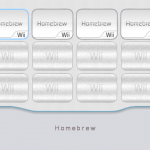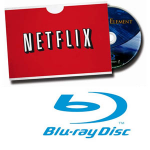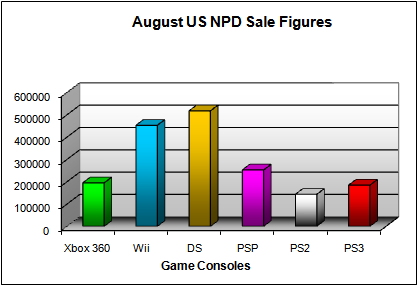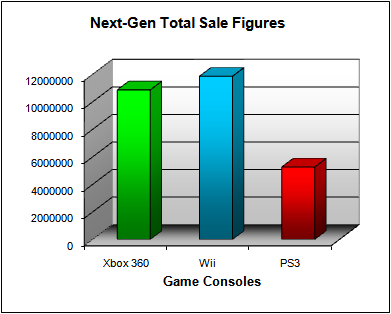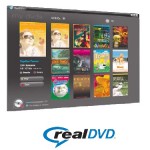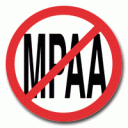A very quiet week this week. Don’t know why, but it was really just the same discussions last week being rehashed again. Maybe the financial meltdown on Wall Street has something to do with it, or maybe last week’s topics were just too interesting (Spore DRM, mainly). I posted the analysis of the August 2008 NPD figures, and my broken PS3 should be returned to me early next week (fingers crossed that it’s properly fixed and remains so).
 Let’s start with the copyright news. Police officers in Chicago are now reporting to the RIAA before their own bosses, in policing copyright infringement for the RIAA. How do you feel about tax payer funded enforcement officers, whom are licensed to use deadly force, now working for the a private industry group to protect their profit margins. Not feeling so good? Well, that’s the sad reality these days.
Let’s start with the copyright news. Police officers in Chicago are now reporting to the RIAA before their own bosses, in policing copyright infringement for the RIAA. How do you feel about tax payer funded enforcement officers, whom are licensed to use deadly force, now working for the a private industry group to protect their profit margins. Not feeling so good? Well, that’s the sad reality these days.
Last week was all about Spore’s controversial DRM, and after a lot of public pressure, EA has relented and eased the DRM restrictions. You’re still limited to one account per copy of the game, and the installation limits still exists, but you are also now able to de-authorize computers that the game has been installed on, so you can install the game on as many computers as you need, except there is a limit to the number of computers the game is installed on at any one time. Sounds like a fair compromise, but does this really stop the pirates who just rip the entire DRM scheme out from the game and make it have unlimited installs? Sometimes I think that DRM isn’t aimed at pirates at all, but at legitimate users as a way to control their spending. In the past, you can install the same game as many times as you want. But now they want to change this, and it’s as if publishers now want to make you pay 3 or 4 times for the same thing in the same household. I can only see this helping piracy to thrive, because being cost free is a huge incentive, but even to those who want to pay for games, having a copy that’s less restrictive would be nice. So I can see people buying the game, but still downloading the pirated version just so they can use it the way they want to.
Onto gaming piracy of a different kind, the Wii homebrew community has been working on many ways to hack the Wii. One of the very first game on the Wii, Zelda: Twilight Princess, had a buffer overflow exploit in it that allowed custom made applications to run on the Wii, including home made games. And as you would expect from the ongoing development of this hack, there is now a software solution to play backed or downloaded up Wii games, opening up a whole new level of piracy for the most popular console in the world. There was a YouTube video of it in action playing, ironically, a backed up version of Twilight Princess, but it has since been removed. Software solutions are easily fixed though through firmware updates, so I’m sure Nintendo will try to plug this loophole very quickly. But then again, the same principle applies to the hack it self, in that it’s software and so can be easily modified to skip around any attempts to shut it down from Nintendo. Or one can just forgo firmware updates.
 Onto HD news now. Last week, Blu-ray sales had their best week in the Nielsen VideoScan charts, accounting for 12% of the top 20 titles by sale volume compared to DVD. In other words, it means that out of the top 20 selling titles by volume, 12% of it was Blu-ray, with 88% belonging to DVDs. That may not sound like much, but the usual percentage for Blu-ray is under 8%. But it turns out that was just a one-off, as sales dropped back down to 8% this week. It seems that the Blu-ray only re-release of Transformers had a huge effect on sales, but it didn’t last long. More meaningful figures will emerge once Iron Man and The Dark Knight hit shelves, then we can see how much of an impact Blu-ray is having on the home video market. Don’t forget to keep a bookmark on this forum thread, where I’ll be posting the sales numbers every week.
Onto HD news now. Last week, Blu-ray sales had their best week in the Nielsen VideoScan charts, accounting for 12% of the top 20 titles by sale volume compared to DVD. In other words, it means that out of the top 20 selling titles by volume, 12% of it was Blu-ray, with 88% belonging to DVDs. That may not sound like much, but the usual percentage for Blu-ray is under 8%. But it turns out that was just a one-off, as sales dropped back down to 8% this week. It seems that the Blu-ray only re-release of Transformers had a huge effect on sales, but it didn’t last long. More meaningful figures will emerge once Iron Man and The Dark Knight hit shelves, then we can see how much of an impact Blu-ray is having on the home video market. Don’t forget to keep a bookmark on this forum thread, where I’ll be posting the sales numbers every week.
NetFlix says that Blu-ray won’t be having much of an impact in 2008. The sales figures that I’ve been posting does back this up, where the Blu-ray sales percentage compared to DVD has been around 5 to 8% throughout the year, with peaks for Blu-ray whenever a new hit movie is available. The last 6 months, a short while after Toshiba announced the end of HD DVD, hasn’t seen a dramatic rise for Blu-ray sales at all (still averaging around 6-7%, which is better than before HD DVD’s fall). NetFlix also believes that Blu-ray prices will fall soon, which will make it more appealing to consumers. I wish that were true, but I’ve kept a close eye on prices ever since last year (for updating my Blu-ray and HD DVD deals page), and if anything, they’ve gone up after the fall of HD DVD, not down. The retail price is the same ($27.95 at Amazon for “hit” titles), but there has been less sales (2 for the price of 1 deals are one, replaced mainly by 3 for 2 deals where the prices are hiked up for the sale). The number of sales are still good (check out the deals page now, and there are half a dozen sales right now), but the prices are higher. The situation is the same in Australia, where older titles are now available for $25, but new titles are still $40-45, which is ridiculously high (the highest price for DVDs is $30, and most are available 3 months after release for under $20). Price drops will help Blu-ray, but it negates the whole point of having a new (and more expensive to manufacture) disc format if profits can’t be increased through price rises. If the high priced Blu-ray isn’t selling and isn’t providing studios with more profit, then you can say that Blu-ray has been a failed experiment in trying to market a more expensive movie format to replace a cheaper one. If Blu-ray prices drop to DVD levels, then studios won’t have benefited much at all, except to replace a cheaper to manufacture format with a more expensive one, albeit providing consumers with a better product (but with more DRM).
To further back up my point about Blu-ray being an experiment in trying to jack up prices of home movies, the BDA says that Blu-ray price drops are not happening anytime soon mainly because Blu-ray isn’t selling in as great numbers as they would like. So Blu-ray will remain expensive and unpopular because it’s unpopular? I think studios need to come to their senses and see that Blu-ray won’t help them increase profits, and so they should accept that and lower prices. I still like Blu-ray because I like HD, and so I would want it to succeed. Proper HD video is better than upscaled DVD for sure, but not worth twice as much money, as the studios seem to think.
And while H.264 is on it’s way to becoming the industry standard for this generation of video, On2’s latest codec claims to be able to save up to 50% on bandwidth compared to H.264. H.264 is already very efficient, and if On2’s codec can be even more so, then that’s good news for online video streaming and downloading.
![]() And finally in gaming, the Xbox 360 is finally having a great time in Japan, as it rose to the top of the sales charts, even going above the Wii. It’s all very “one-off-ish”, of course, as the reasons for the sales surge are many. Low stock from a previously high demand game, a new game that’s attracting users, the price drop and the increased HDD, all helped to make it number one in Japan for the first time ever. It’s not easy for an American console to make it big in Japan, and I think Microsoft has finally understood the reasons why – games matter! And getting the Japanese game producers on-board is more important than anything there.
And finally in gaming, the Xbox 360 is finally having a great time in Japan, as it rose to the top of the sales charts, even going above the Wii. It’s all very “one-off-ish”, of course, as the reasons for the sales surge are many. Low stock from a previously high demand game, a new game that’s attracting users, the price drop and the increased HDD, all helped to make it number one in Japan for the first time ever. It’s not easy for an American console to make it big in Japan, and I think Microsoft has finally understood the reasons why – games matter! And getting the Japanese game producers on-board is more important than anything there.
Staying in Japan, the PS3 has a new firmware but it’s for Japanese consoles only. You can install it if you live outside of Japan, but it’s not compulsory (and it doesn’t to anything). I’ve still not seen any response in relation to firmware 2.42 and the Blu-ray drive problem – I’m still thinking it’s more than a coincidence, but also more than just a firmware problem. My current theory is that 2.42 was released to “flush out” the consoles with bad Blu-ray drives – the bad Blu-ray laser is a design fault for quite a few PS3s, and the problem existed before 2.42 with similar symptoms. The fact that after 2.42 came out, the report of problems suddenly increased suggests there is some relation there. But I don’t think 2.42 “breaks” perfectly working PS3s, but it might help those problems show up sooner.
That’s all the news for this week. Not much, I know. Hopefully next week will bring more news. See you then.


